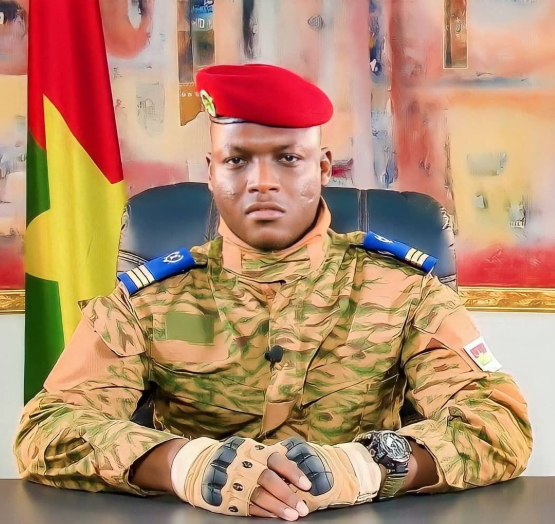**Title: “PLO Lumumba’s Bold Exposé: Africa’s Struggle for Unity and Survival”**

In a riveting address that has sent shockwaves across the continent, renowned pan-Africanist PLO Lumumba has unleashed a torrent of explosive revelations about the ongoing threats facing Africa. Speaking passionately at a recent event, Lumumba underscored the urgent need for unity among African nations, warning that neocolonial forces are actively working to destabilize the continent.
With a fiery demeanor, Lumumba asserted, “They want to eliminate us,” referencing the ongoing insurgencies in Burkina Faso, Mali, Chad, Guinea, and northern Nigeria. His words resonate with a chilling urgency, as he called upon the youth of Africa to recognize their role in the continent’s liberation. “This is an intergenerational warfare,” he declared, urging young Africans to rise up against the remnants of colonialism that continue to plague their nations.

At the heart of Lumumba’s speech was a poignant reminder of Africa’s tumultuous history. He recounted the Berlin Conference of 1884-1885, where European powers divided the continent into spheres of influence, leaving a legacy of division that still haunts Africa today. “We must never forget,” he implored, “that the desire to regain independence has always been alive.” His emphasis on historical context served as a rallying cry for a new generation to reclaim their identity and heritage.
Lumumba’s impassioned rhetoric also highlighted the psychological impact of colonialism, as he recounted how colonial powers sought to erase African cultures and languages. “When the colonialists came, they told us that everything about us was wrong,” he lamented, calling for a “decolonization of the mind.” His words struck a chord with the audience, reminding them of the ongoing struggle to embrace their true selves in a world that often marginalizes their identities.

As the clock ticks towards Africa Day, Lumumba urged listeners to reflect on the progress made since the founding of the Organization of African Unity (OAU) in 1963. “The work is incomplete,” he warned, citing the ongoing struggles against neocolonialism and the need for a united front. He passionately called for a pan-Africanism that transcends mere rhetoric, advocating for practical solutions that address economic self-sufficiency and social justice.
Lumumba’s speech was punctuated by historical references to iconic figures in the fight for African liberation, from Kwame Nkrumah to Nelson Mandela. He invoked the spirit of pan-Africanism, urging all Africans, both on the continent and in the diaspora, to come together to forge a path toward unity and strength. “You are the Moses,” he declared, encouraging the youth to take charge of their destinies and shape the future of Africa.
The urgency of Lumumba’s message is underscored by the escalating challenges facing African nations today. As external forces continue to manipulate political landscapes, the call for solidarity has never been more critical. “If Africa is to be great, it is you young men and women who must make her great,” he proclaimed, igniting a sense of responsibility among the audience.
In closing, Lumumba painted a vivid picture of a future where African nations are united, free from the shackles of colonialism. “I look forward to the day when there will be no borders,” he envisioned, a powerful reminder that the dream of a united Africa is not just a fantasy but a goal that requires collective effort.
As the echoes of his speech reverberate across the continent, one thing is clear: PLO Lumumba’s powerful words are not just a call to action; they are a clarion call for the revival of African unity and resilience in the face of ongoing adversity. The time for change is now, and the youth of Africa must heed this urgent call to reclaim their narrative and their future.


